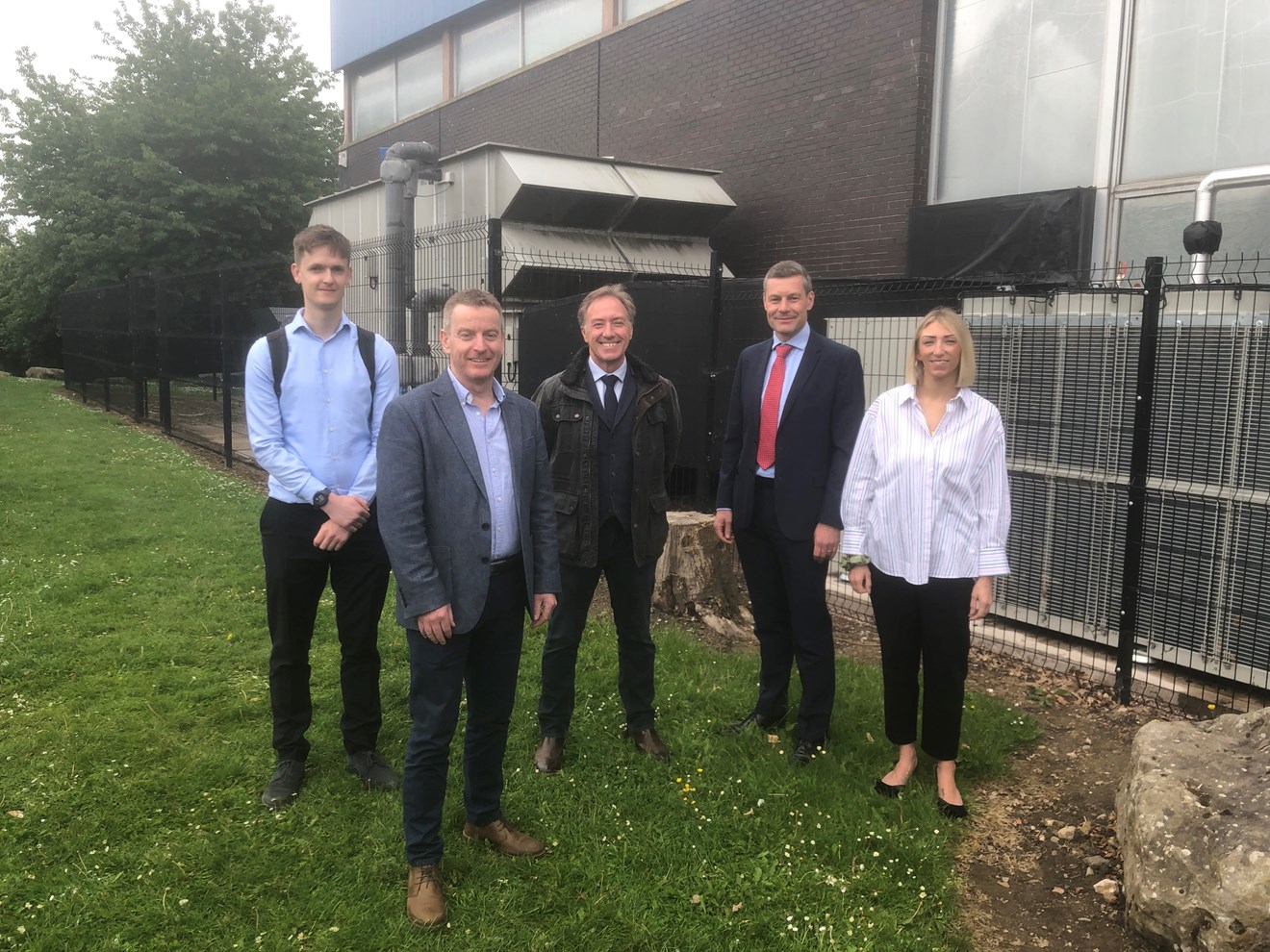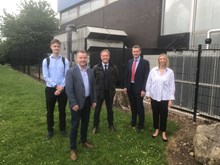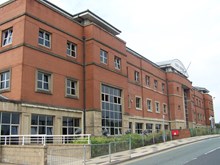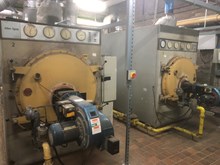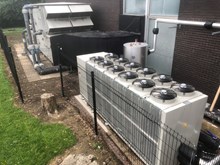In April 2017 Stoke-on-Trent City Council formed a strategic collaboration with Siemens to develop a series of energy-saving projects as part of the council’s plans to dramatically decrease carbon emissions, increase the use of renewable energy and reduce costs. As the lead technical partner, boosted by several local partnerships, Siemens entered discussions to investigate ways of improving the energy performance of the local authority’s buildings over a five-year period.
As part of its decarbonisation drive, the council secured £4.34 million funding from the Department for Business, Energy and Industrial Strategy (BEIS) under the Public Sector Decarbonisation Scheme, delivered by Salix Finance. The scheme aims to put the public sector at the forefront of decarbonising buildings in the UK.
The first phase of the programme involved a widescale LED lighting upgrade. A total of 5,440 energy-efficient LEDs were installed in many well-known locations in the city over nine months. These included the Civic Centre and Town Hall, in Stoke; Swann House administrative centre; John Street Multi-Storey Car Park, in Hanley; Gladstone Pottery Museum, in Longton; Hanley Market and in three sports and leisure facilities – Fenton Manor Sports Complex, Dimensions Leisure Centre and New Horizons Sport and Leisure Centre. The system reduced lighting loads by 76 per cent, which saved the council £205,663 annually and lowered carbon emissions by 437 tonnes each year.
Three new Combined Heat and Power (CHP) installations have also been installed at the Civic Centre, Dimensions Leisure Centre and at Fenton Manor Sports Complex. All the CHP systems will be operational by 2025 to generate electricity and steam for power and heat on-site, saving the council £250,000 per year.
In addition, solar PV installations supply power to Dimensions Leisure Centre and Fenton Manor Sports Complex, adding further to onsite power generation.
Air Source Heat Pumps at Fenton Manor Sports Complex and New Horizons Leisure Centre also provide a lower-carbon way of heating the swimming pools and contribute further to decarbonisation. New pool pumps, filtration and control systems were added. Heat pumps and air handling units have also replaced panel heating at Steel House, an operational council-run building.
To help manage the new technologies, Siemens Desigo CC was deployed as an upgrade to the existing building management system which has improved the optimisation and efficient use of building services across the sites. The Desigo CC system is used to monitor, control and visualise all the operational and energy assets such as Heating, Ventilation and Air Conditioning (HVAC), lighting and security systems inside buildings across numerous sites to optimise the comfort levels, safety and energy efficiency. A dashboard flags the status, health and maintenance requirements of connected devices while trend-monitoring and utility metering are reported by the system. The rich feature set gives support engineers the freedom to monitor and maintain buildings remotely, saving valuable time travelling between sites to attend fault incidents.
The installation at Fenton Manor Sports Complex in particular has made the facility one of the best examples of a retrofitted local authority-run leisure centre in the country. The LED lighting across the site, including sensor operated lighting in sports halls which can be dimmed and have reduced glare, mean the facilities are suitable for international sports competitions. Meanwhile the CHP systems have replaced 1970s industrial gas boilers, significantly reducing carbon emissions.
Councillor Carl Edwards, Stoke-on-Trent City Council cabinet member for housing and the environment, said: “We’re serious about reducing our carbon footprint; building the use of sustainable energy into the fabric of our city’s infrastructure; reducing energy costs to help to keep the cost of delivering public services low for residents, visitors and service users; and setting an example of what can be achieved for the rest of the city.
“The decarbonisation programme has used the engineering and technological expertise of Siemens and is radically transforming energy uses in our public buildings. Fenton Manor Sports Complex is an exemplar of this work. A wide range of works means the building, which is approaching 50 years old, is not only fit for the future, but has boosted facilities to the extent that sports halls are competition-ready for national and international events.
“The decarbonisation works sit alongside innovative programmes such as the District Heat Network, where more than four kilometres of piping is already installed under roads in Stoke town with the aim of connecting properties up to more sustainable energy supplies.”
Director of Programmes at Salix Finance Ian Rodger said: “We are delighted to be working with the City of Stoke-on-Trent on this ambitious scheme.
“Our team have worked very closely with the council on these projects and we have been very impressed by the commitment to reduce the carbon footprint.”
Rob Sinclair, Account Manager at Siemens: “Combining multiple energy assets that are synchronised to work together while significantly reducing carbon emissions across numerous public buildings requires a high-degree of technical competence. This project has laid the foundations for Stoke-on-Trent City Council to consider where it goes next on its decarbonisation journey and where best to funnel investments that will benefit its stakeholders and the local community to deliver a more sustainable and greener future.”
As well as its work with Stoke-on-Trent City Council, Siemens has also supported other decarbonisation projects across Staffordshire. Its work with Keele University and its SEND project created Europe’s largest testbed for the research and development of renewable and smart energy technologies. Through SEND, energy generation, distribution, storage, forecasting and energy balancing implementations are being learned in a ‘living laboratory’ to help achieve cost and carbon savings for the university.
Rob Sinclair, Account Manager at Siemens concluded: “All this work is only just the beginning and a testament to what close and good collaboration can achieve. Delivering both financial and environmental savings, it is a major step towards creating an exciting carbon-neutral future for Stoke-on-Trent, and Staffordshire.”

